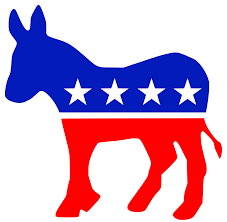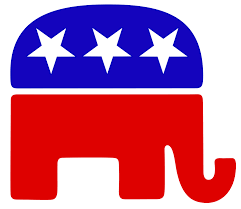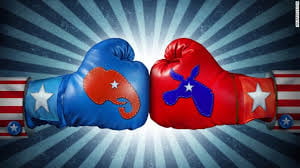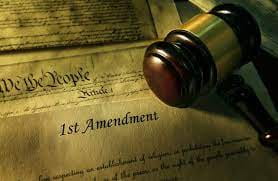 Last month, I wrote a blog post about the history and importance of the Communications Decency Act, section 230 (CDA 230). I ended that blog post by acknowledging the recent push to amend or repeal section 230 of the CDA. In this blog post, I delve deeper into the politics behind the push to amend or repeal this legislation.
Last month, I wrote a blog post about the history and importance of the Communications Decency Act, section 230 (CDA 230). I ended that blog post by acknowledging the recent push to amend or repeal section 230 of the CDA. In this blog post, I delve deeper into the politics behind the push to amend or repeal this legislation.
“THE 26 WORDS THAT SHAPED THE INTERNET”
If you are unfamiliar with CDA 230, it is the sole legislation that governs the internet world. Also known as “the 26 words that shaped the internet” Congress specifically articulated in the act that the internet is able to flourish, due to a “minimum of government regulation.” This language has resulted in an un-regulated internet, ultimately leading to problems concerning misinformation.
Additionally, CDA 230(c)(2) limits civil liability for posts that social media companies publish. This has caused problems because social media companies lack motivation to filter and censor posts that contain misinformation.
“No provider or user of an interactive computer service shall be treated as the publisher or speaker of any information provided by another information content provider” (47 U.S.C. § 230).
Section 230’s liability shade has been extended far beyond Congress’s original intent, which was to protect social media companies against defamation claims. The features of this legislation have resulted in a growing call to update section 230.
In this day and age, an idea or movement rarely gains bi-partisan support anymore. Interestingly, though, amending, or repealing section 230 has gained recent bipartisan support. As expected, however, each party has differing reasons as to why the law should be changed.
BIPARTISAN OPPOSITION

Although the two political parties are in agreement that the legislation should be amended, their reasoning behind it stems from differing places. Republicans tend to criticize CDA 230 for allowing social media companies to selectively censor conservative actors and posts. In contrast, democrats criticize the law for allowing social media companies to disseminate false, and deceptive information.
DEMOCRATIC OPPOSITION

On the democratic side of the aisle, President Joe Biden has repeatedly called for Congress to repeal the law. In an interview with The New York Times, President Biden was asked about his personal view regarding CDA 230, in which he replied…
House Speaker Nancy Pelosi has also voiced opposition, calling CDA 230 “a gift” to the tech industry that could be taken away.
The law has often been credited by the left for fueling misinformation campaigns, like Trumps voter fraud theory, and false COVID information. In response, social media platforms began marking certain posts as unreliable. This led to the reasoning behind republicans opposition to section 230.
REPUBLICAN OPPOSITION

Former President Trump has voiced his opposition to CDA 230 numerous times. He first started calling for the repeal of the legislation in May of 2020, after Twitter flagged two of his tweets regarding mail-in voting, with a warning label that stated “Get the facts about mail-in ballots.” In fact, in December, Donald Trump, the current President at the time, threatened to veto the National Defense Authorization Act annual defense funding bill, if CDA 230 was not revoked. The former presidents opposition was so strong, he issued an Executive Order in May of last year urging the government to re-visit CDA 230. Within the order, the former president wrote…
The executive order also asked the Federal Communications Commission to write regulations that would remove protections for companies that “censored” speech online. Although the order didn’t technically affect CDA 230, and was later revoked by President Biden, it resulted in increased attention on this archaic legislation.
LONE SUPPORTERS

Support for the law has not completely vanished, however. As expected, many social media giants support leaving CDA 230 untouched. The Internet Association, an industry group representing some of the largest tech companies like Google, Facebook, Amazon, and Microsoft, recently announced that the “best of the internet would disappear” without section 230, warning that it would lead to numerous companies being subject to an array of lawsuits.
In a Senate Judiciary hearing in October 2020, Facebook CEO Mark Zuckerberg and Twitter CEO Jack Dorsey warned that revoking Section 230 could…
However, Mark Zuckerberg took a more moderate position as the hearing continued, telling Congress that he thought lawmakers should update the law.
Facebook has taken a more moderate approach by acknowledging that 230 should be updated. This approach is likely in response to public pressure due to increased awareness. Irregardless, it signifies a likely chance that section 23o will be updated in the future, since Facebook represents one of the largest social media companies protected by 230. A complete repeal of this law would create such major impacts, however, that this scenerio seems unlikely to happen. Nevertheless, growing calls for change, and a Democratic controlled Congress points to a likelihood of future revision of the section.
DIFFERING OPINIONS

Although both sides of Washington, and even some social media companies, agree the law should be amended; the two sides differ greatly on how to change the law.
As mentioned before, President Biden has voiced his support for repealing CDA 230 altogether. Alternatively, senior members of his party, like Nancy Pelosi have suggested simply revising or updating the section.
Republican Josh Hawley recently introduced legislation to amend section 230. The proposed legislation would require companies to prove a “duty of good faith,” when moderating their sites, in order to receive section 230 immunity. The legislation included a $5,000 fee for companies that don’t comply with the legislation.
Senator Ted Cruz has advocated for a complete repeal of section 230, reasoning that…
Adding to the confusion of the section 230 debate, many fear the possible implications of repealing or amending the law.
FEAR OF CHANGE

Because CDA 230 has been referred to as “the first amendment of the internet,” many people fear that repealing this section altogether would result in a limitation on free speech online. Although President Biden has voiced his support for this approach, it seems unlikely to happen, as it would result in massive implications.
One major implication of repealing or amending CDA 230 is that it could allow for numerous lawsuits against social media companies. Not only would major social media companies be affected by this, but even smaller companies like Slice, could become the subject of defamation litigation by allowing reviews to be posted on their website. This could lead to an existence of less social media platforms, as some would not be able to afford legal fees. Many fear that these companies would further censor online posts for fear of being sued. This may also result in higher costs for these platforms. In contrast, companies could react by allowing everything, and anything to be posted, which could result in an unwelcome online environment. This would be in stark contrast to the Congress’s original intent in the creation of the CDA, to protect children from seeing indecent posts on the internet.
FUTURE CHANGE..?
Because of the intricacy of the internet, and the archaic nature of CDA 230, there are many differing opinions as to how to successfully fix the problems the section creates. There are also many fears about the consequences of getting rid of the legislation. Are there any revisions you can think of that could successfully deal with the republicans main concern, censorship? Can you think of any solutions for dealing with the democrats concern of limiting the spread of misinformation. Do you think there is any chance that section 230 will be repealed altogether? If the legislation were to be repealed, would new legislation need to be created to replace CDA 230?





